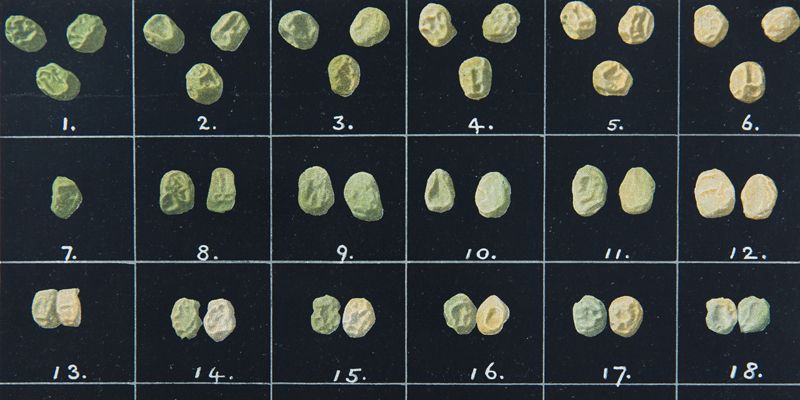
Biologists arguing about whether the results of experiments by the man hailed as the father of modern genetics are "too good to be true" have been distracted from a more important debate.
In a new paper in Science about Gregor Mendel, the 19th century Austrian monk whose experiments on peas revealed the basic principles of heredity, University of Leeds science historian Professor Gregory Radick suggests the time has come for a different perspective on the controversy, which over the years has encompassed allegations of fraud and Cold War political pressure.
Mendel delivered his lectures on “Experiments on Plant Hybrids” 150 years ago, going on to publish them in 1866.
Professor Radick said: “The question of whether Mendel faked his data only began to be discussed widely in the mid-1960s, when his main accuser was identified as the Cambridge geneticist Ronald Fisher.
“But Fisher saw himself as exonerating Mendel, praised as a great thinker whose experiments were intended merely to demonstrate truths reached by theorising. Nor was Fisher the first to analyse Mendel's data statistically and find them surprising. That was done in the early 1900s by the Oxford biologist W F R Weldon, who rapidly became the leading critic of the new ‘Mendelism’."
Drawing on recent archival research with Weldon's unpublished work, Professor Radick shows that, for Weldon, the statistical problem was a symptom of a much deeper one: Mendelism's tendency to sweep real variability into over-simple categories, and to ignore the role of hereditary background and environmental conditions in making inherited characters so variable.
Professor Radick suggests it is time to retire the Mendel-Fisher controversy and re-engage with Weldon's critique.
Beyond the “Mendel-Fisher controversy” is published in the Perspectives section of this week’s issue of Science.
Further information
Gregory Radick is Professor of History and Philosophy of Science in the School of Philosophy, Religion and History of Science.